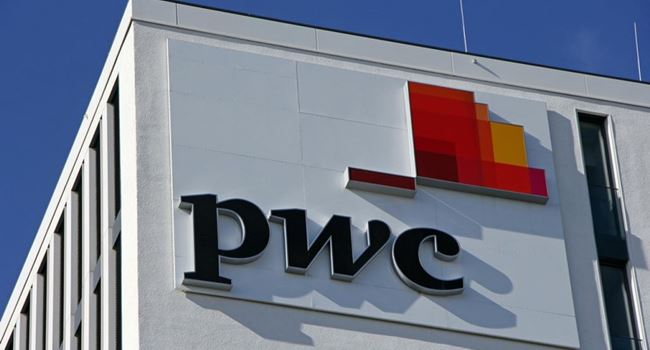Business
PwC projects 2% contraction in Nigerian economy in 2020

Nigeria’s Gross Domestic Product (GDP) would taper by two per cent this year relative to 2019, when a growth of 2.3 per cent was recorded, professional services network, PricewaterhouseCoopers (PwC) said on Monday.
PwC noted in its Nigerian Economic Alert for December that the position derived from the forecast that Africa’s biggest economy’s growth rate in the fourth quarter would possibly fall between -1.5 per cent and 0.5 per cent.
Nigeria entered into a second recession since 2016 after its GDP recorded a seconder quarter of negative growth in the three months to September, with the economy shrinking by -3.6 per cent.
The forecast is a better outlook for Nigeria, given that the International Monetary Fund predicted a -4.3 per cent growth and the World Bank a -3.2 per cent growth this year, PwC said.
According to a group of PwC economists led by Andrew Nevin, partner West Africa financial services and chief economist, Nigeria’s recovery will be shaped by execution of fiscal reforms stipulated in the Nigeria Economic Sustainability Plan and Finance Bill 2020.
The Finance Bill 2020 will speed up economic expansion, the analysts said, and support sustainable development through a downward review of import duties rate on motor vehicles and tractors to 5 per cent and 10 per cent respectively and exempting tertiary education tax by small firms with turnover below N25 million.
Read also: Ripples Nigeria’s Arinze emerges 1st runner up at 2020 PwC Awards
“The country’s economic growth rate in Q4 2020 could most likely fall between -1.5 per cent and 0.5 per cent, translating to a two per cent annual contraction in 2020 from a growth of 2.3 per cent in 2019. This growth rate is better that most outlooks for Nigeria,” the PwC report said.
COVID-19 has made oil-reliant economies vulnerable to the double whammy of a bearish international oil market and disruptions to the global supply chains for the movement of people, goods and services, PwC stated.
Much as the economy has been forecasted to exit recession in 2021, growth is expected to be subdued and weak while inflation is anticipated to be well above the Central Bank of Nigeria’s target of maintaining it as a single digit.
The inflation figure for November is to be issued by the statistics office later on Tuesday.
Join the conversation
Support Ripples Nigeria, hold up solutions journalism
Balanced, fearless journalism driven by data comes at huge financial costs.
As a media platform, we hold leadership accountable and will not trade the right to press freedom and free speech for a piece of cake.
If you like what we do, and are ready to uphold solutions journalism, kindly donate to the Ripples Nigeria cause.
Your support would help to ensure that citizens and institutions continue to have free access to credible and reliable information for societal development.
























